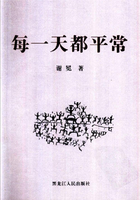But if the second part of the eighteenth century saw the territorial extension of serfdom over almost all the Empire, it was also the period in which first began the movement which led to emancipation. From France came the first appeals for the liberation of the serfs. In 1766 the Society of Political Economists founded in Petersburg on the model of the agricultural societies of France was asked by the impress to answer the question: "Whether the State would be benefited by the serf becoming the free owner of his land?" Marmontel and Voltaire considered it to be their duty to express opinions in favour of a partial abolition of serfdom. Marmontel thought that the time was come to supersede villein-service by a sort of hereditary copyhold. Voltaire went a step farther, inviting the impress to liberate immediately the serfs on the Church lands. As to the rest, free contract alone ought to settle the question of their emancipation. Another Frenchman much less known, the legist Bearde de l'Abaye, gave it as his opinion that the Government should maintain a strict neutrality towards the question of serfdom. It ought to be abolished only by free contract between landlords and serfs, the former endowing the latter with small parcels of land. In this way the serf would become a private owner, so that in case he should rent any land from the squire, the squire would be able to seize the peasant's plot in case of non-payment of his rent. Diderot was the only Frenchman who acknowledged the necessity of an immediate abolition of personal servitude; but in his letters to the Empress he does not say a single word about the necessity for securing to the liberated serf at least a small portion of the manorial land.
Although Catherine II was willing to be advised by the Encyclopedists as to the way in which serfdom might be abolished, she took effectual means to prevent the expression of Russian public opinion on the same subject. A memorial presented to the Petersburg Society of Political Economists by a young Russian author called Pelenev was not allowed to appear in print, for no other reason than that it contained a criticism on the existing system of serfdom.(1*) The author of the memorial did not demand the immediate abolition of this old wrong; he only wanted to see it replaced by a sort of perpetual copyhold. The Government was more severe towards another Russian writer, Radischev, who was the first to advocate not only the personal liberty of the serf, but also his endowment with land. The work of Radischev (2*)appeared in 1789, several years after the suppression of the insurrectionary movement of Pougachev, but it was regarded as a sort of commentary on the demand for "liberty and land," which the Russian peasant had addressed to that leader, who had answered it by a solemn promise that he would make the serf free and prosperous. Catherine not only ordered the immediate suppression of the work of Radischev, but brought the author before the Courts of Justice, accusing him of being a traitor to his country. Radischev was condemned to death; but this penalty was commuted to perpetual banishment to Siberia.
It was not till the reign of Alexander the First that the Russian Government began to take effectual measures to ameliorate the social condition of the serf. According to the account given by those immediately around him, and especially by Adam Czartorysky, Alexander was an avowed friend of peasant emancipation. He gave his firm support to the proposed law giving the landlords the right to liberate their serfs, and even to endow them with shares in the open fields if they paid for them.
In 1803 this law was passed, and 47,000 serfs were soon after enfranchised, and became a separate class under the name of the "free agriculturists." Sixteen years later (in 1819) the enfranchisement of the serf became an accomplished fact in the three Baltic provinces, the peasant obtaining the free disposal of his person on condition of abandoning to his landlord the parcels of ground previously in his possession. This reform was accomplished in the same manner as that carried out in 1812 by Napoleon in the Kingdom of Poland. In the thoroughly Russian provinces no direct measures were at this time taken to abolish the legal servitude of the peasant, but the question was more than once debated in private circles and by learned bodies. In the year 1812, for instance, the Petersburg Society of Political Economists declared that it would give 2000 roubles to the author of the best treatise on the question of the relative advantages of free and servile labour in agriculture. This question by itself shows the influence which Adam Smith's "Wealth of Nations," which had been translated into Russian in 1803, was beginning to exercise on Russian thought. Nine treatises were forwarded to the Society, of which three only were in favour of the further maintenance of servile labour. But the greater number expressed the opinion that the enfranchisement of the serf, provided that he was allowed to keep the land he occupied, would be of great advantage to the landlord himself. This idea, in conformity to which serfdom had been abolished in the Baltic provinces, was the expression of a fact quite familiar to the student of economic history. The work of an enslaved labourer is never so productive as that of a free labourer. So long as rent is low, as certainly was the case in Russia in past centuries, the work of the serf is by no means fairly recompensed by the land he owns. But in the first quarter of the nineteenth century, when Russia began to be considered as the granary of Europe, on account of the vast exports of wheat from her ports, rent rapidly rose, and this rise produced a complete change in the relative value of servile work and the land which was in the possession of the peasant.














